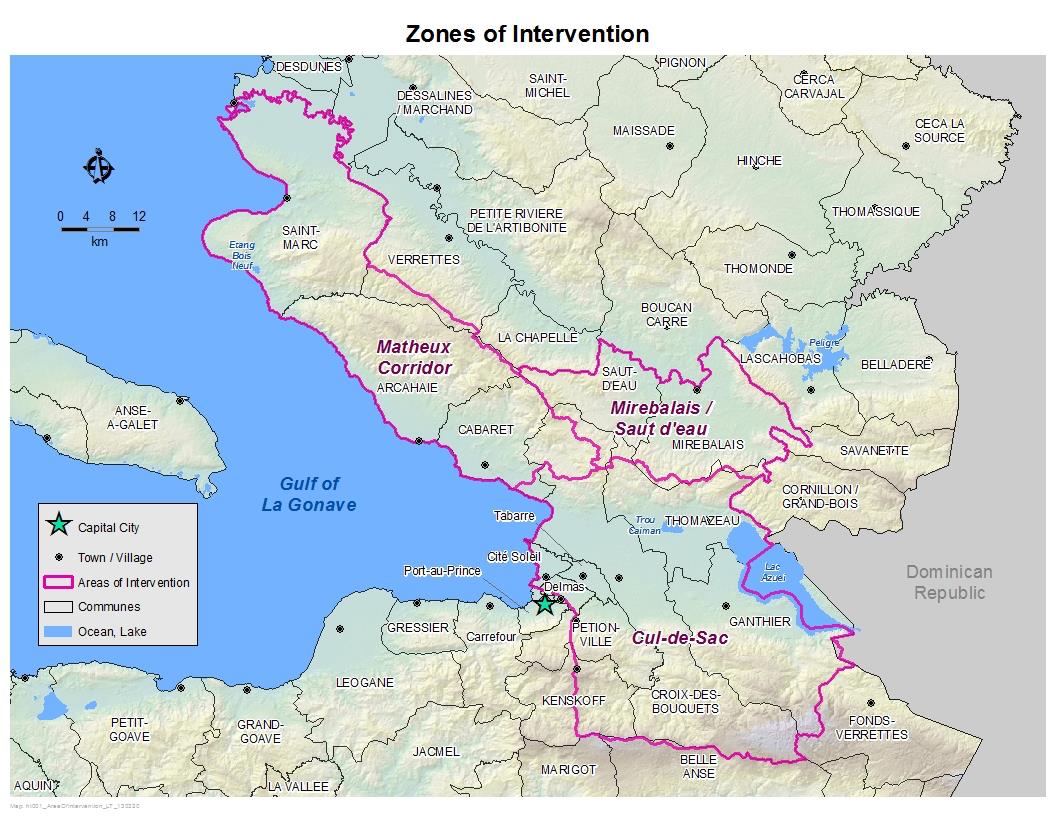About AREA

Quick Links: Our team | Graduate Students
Strengthening Haitian institutions through agricultural research and extension
Feed the Future Haiti Appui à la Recherche et au Développement Agricole project (AREA), also referred to as Support to Agricultural Research and Development (SARD), was launched in May 2015 to enhance and expand Haiti's efforts to address food insecurity and undernutrition by strengthening and supporting the country's public and private agricultural institutions.
UF/IFAS is joined by the University of Illinois at Urbana–Champaign and Louisiana State University on the project.
Goal
Build the capacity of Haitian institutions to increase the availability of improved production technologies to farmers and the private sector through effective extension and development of an agricultural innovation system.
Five key principles
The AREA project is built on five principles:
- Provide opportunities for male and female Haitians of all classes to improve their lives.
- Mentor agents of change in governmental and non-governmental institutions and organizations.
- Build and support stronger, more equitable farmer organizations and agribusinesses.
- Foster a culture of evaluation, self-assessment and accountability.
- Inspire educated and trained Haitians to fuel the growth of the agriculture sector through innovative research and extension.
Strategic approach
- Enhance and expand country-driven efforts to address food insecurity and undernutrition by strengthening and supporting Haitian public and private institutions.
- Use technological innovations to increase agricultural productivity and nutrition by focusing on significant portions of the nation’s agricultural export production. Technologies are defined as any practice, on or off-farm, that can improve the production, quality, value or utility of agricultural products produced in the target region.
- Incorporate women into every component of the AREA program to achieve gender parity in all projects activities, outputs and outcomes. Technologies will also focus on the specific needs of women and identifying and developing opportunities for new avenues of participation in the food chain for women.
The AREA Project seeks to:
- Increase the availability of improved production technologies and systems by identifying and documenting production challenges faced by men and women in the target area and addressing these challenges through existing or potential technologies.
- Strengthen the extension of agricultural technologies and nutrition information by assisting the Ministry of Agriculture and the Rural Centers for Agricultural Extension and Development to develop effective extension models to increase the adoption of new technologies in the target region.
- Strengthen the capacity of the Faculty of Agronomy and Veterinary Medicine (FAMV) at the State University of Haiti to address the needs of farmers and agribusinesses through modernization of the curriculum.
- Support the work of the Ministry of Agriculture and the rural centers for agricultural extension and development (CRDDs) to fulfill their roles in agricultural research and extension through capacity building.
Funding
In May 2015, the AREA project received a $13.7 million five-year grant from the U.S. Agency for International Development (USAID) as part of the U.S. Government’s Feed the Future initiative to reduce global hunger.
Resources
- Fact sheet about the AREA project: English | French (2018); English (2015)
- Anti-trafficking Plan: English | French
Zones of Intervention
This USAID map shows the primary area for the activities of the AREA project.





